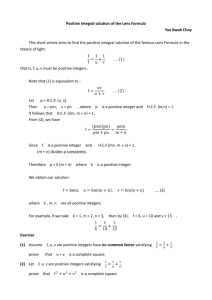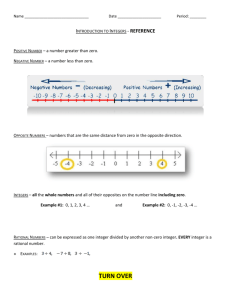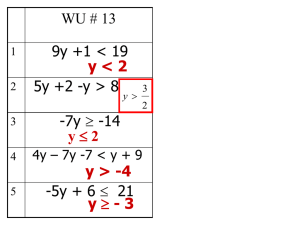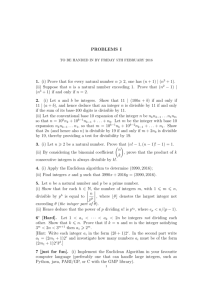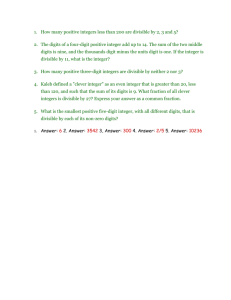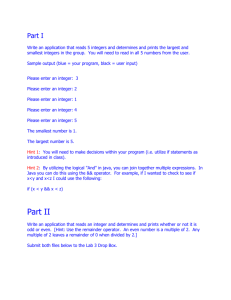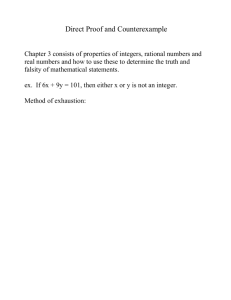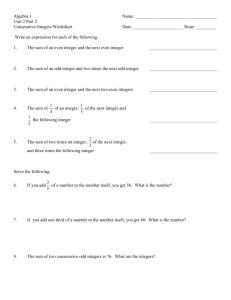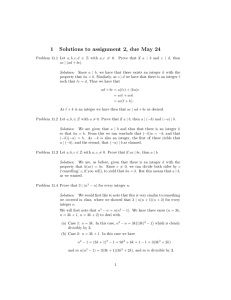Practice Problems for Chinese Remainder Theorem
advertisement
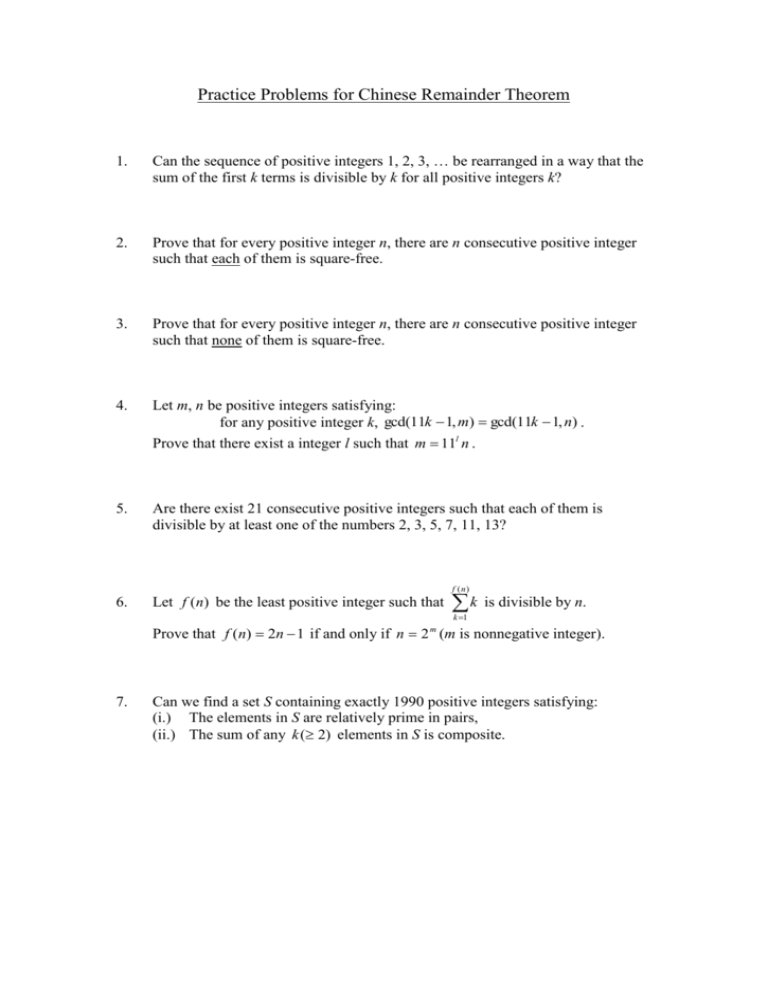
Practice Problems for Chinese Remainder Theorem 1. Can the sequence of positive integers 1, 2, 3, … be rearranged in a way that the sum of the first k terms is divisible by k for all positive integers k? 2. Prove that for every positive integer n, there are n consecutive positive integer such that each of them is square-free. 3. Prove that for every positive integer n, there are n consecutive positive integer such that none of them is square-free. 4. Let m, n be positive integers satisfying: for any positive integer k, gcd(11k 1, m) gcd(11k 1, n) . Prove that there exist a integer l such that m 11l n . 5. Are there exist 21 consecutive positive integers such that each of them is divisible by at least one of the numbers 2, 3, 5, 7, 11, 13? 6. Let f (n) be the least positive integer such that f ( n) k is divisible by n. k 1 Prove that f (n) 2n 1 if and only if n 2 m (m is nonnegative integer). 7. Can we find a set S containing exactly 1990 positive integers satisfying: (i.) The elements in S are relatively prime in pairs, (ii.) The sum of any k ( 2) elements in S is composite.
